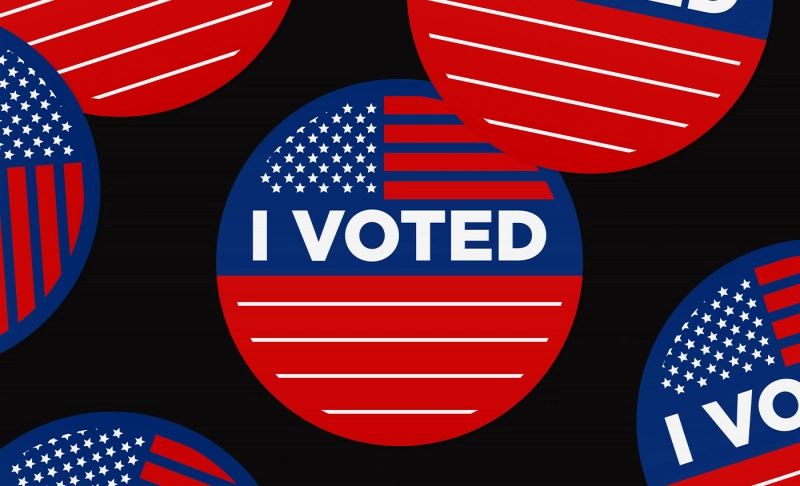By: Devika Kandelwal
November 6 2020

States with over 100% eligible voter registration is not unusual as many do not regularly update their voter rolls. This does not lead to voter fraud.
States with over 100% eligible voter registration is not unusual as many do not regularly update their voter rolls. This does not lead to voter fraud.Judicial Watch, a partisan conservative organization, published a study in Oct. 2020 wherein they claimed they found 1.8 million 'ghost voters' or more registered voters than eligible voting-age citizens in 29 states, and warned of dirty elections and voter fraud. The study found eight states showing state-wide registration rates exceeding 100%: Alaska, Colorado, Maine, Maryland, Michigan, New Jersey, Rhode Island, and Vermont. The study claims that they collected the most recent registration data posted online by the states themselves. However, voter rolls don't get updated very often. According to Pew Research Center, when voter information is sent to an election center, the data is often entered manually and names are added to the voter list. A voter must supply any change to that information, such as a new address, name, or party affiliation, which is usually manually entered and processed by election officials. The inability of this paper-based process to keep up with voters as they move or die can lead to problems with the rolls, including showing more registered voters than there are in the state. However, this does not amount to voter fraud and updating voter rolls is a complicated process which takes time. While there have been no recent major incidents of voter fraud, there was a case of electoral fraud committed by Republicans in North Carolina. Senate Majority Leader Mitch McConnell, R-Ky., referenced that case when warning against potential voter fraud in other states. In that case, a political strategist working for a Republican congressional candidate was indicted on charges of orchestrating a scheme to collect and submit fraudulent absentee ballots in 2018 and 2016, including forging signatures and filling out incomplete ballots, and paying workers to collect them. However, these cases are extremely rare in the United States. The Brennan Center, alongside academics and journalists, investigated claims of voter-impersonation fraud, where an ineligible voter pretends to be an eligible voter at the polls and found that it almost never happens. They determined that Americans are more likely to be struck by lightning than to commit voter-impersonation fraud.